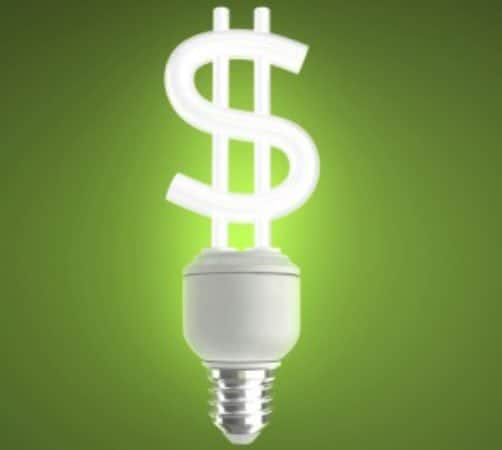
If you have ever looked into anything concerning your home, I am SURE you have heard the term “energy efficient.” While it sounds catchy and appealing to the consumer, what exactly does it mean for a product to be “Energy Efficient?” Why should you, as a homeowner, concern yourself with the energy efficiency rating of a product?
The technical definition for energy efficiency is simply: a goal to reduce the amount of energy required to provide products and services. It is basically a method of reducing energy consumption by using less energy to achieve the same output.
A big focus for this movement is to reduce the human carbon footprint.

The DoE says, “energy efficiency is one of the easiest and most cost effective ways to combat climate change, clean the air we breathe, improve the competitiveness of our businesses and reduce energy costs for customers.” By generating less energy, buildings emit fewer greenhouse gases, therefore improving environmental performance. So on a grander scale, “energy efficiency” was a movement beginning with large factories and buildings in mind. As the movement progressed however, and the technology to save energy advanced it became available to the consumer in the homeowner sector.
In terms of adding to or upgrading products of your home, the energy efficiency refers to how much energy your home uses (heating, cooling, electricity, water, etc) and the cost associated. How much does it cost you to heat your home in the winter or cool it during the summer? The more energy efficient the home, the less energy it will use to maintain a comfortable temperature and run your appliances (or whatever else needs energy). By using less energy, you are obviously going to save on the costs associated with it.
For example, with our energy efficient windows and siding, the insulating factors will end up saving you money by holding the hot air in during the winter, and keeping it out during the warmer months. The better insulated your home, the less hot air in the cold months (and cold air during the summer) you are going to need to generate. Creating this heat means using energy, whether it be electricity or oil (however you heat your home). Needing to create less heat means using less energy, which means lower heating/cooling bills.
“Energy Efficiency” is essentially a measurement associated with the need for less energy for your products to operate effectively. An energy efficient dryer might use less electricity. An energy efficient shower head might use less water. Energy efficient windows are going to keep out the drafts requiring you to turn up your heat.

Now that you understand what an energy efficient product is supposed to do, it might be a little easier to know what you want when replacing components (windows, siding, doors) on your home. At Conservation Construction, we have industry leading products in energy efficiency. The goal of our products is not only to look and function exceptionally, but it is also to save you money (and a few greenhouse gases) in the long run.